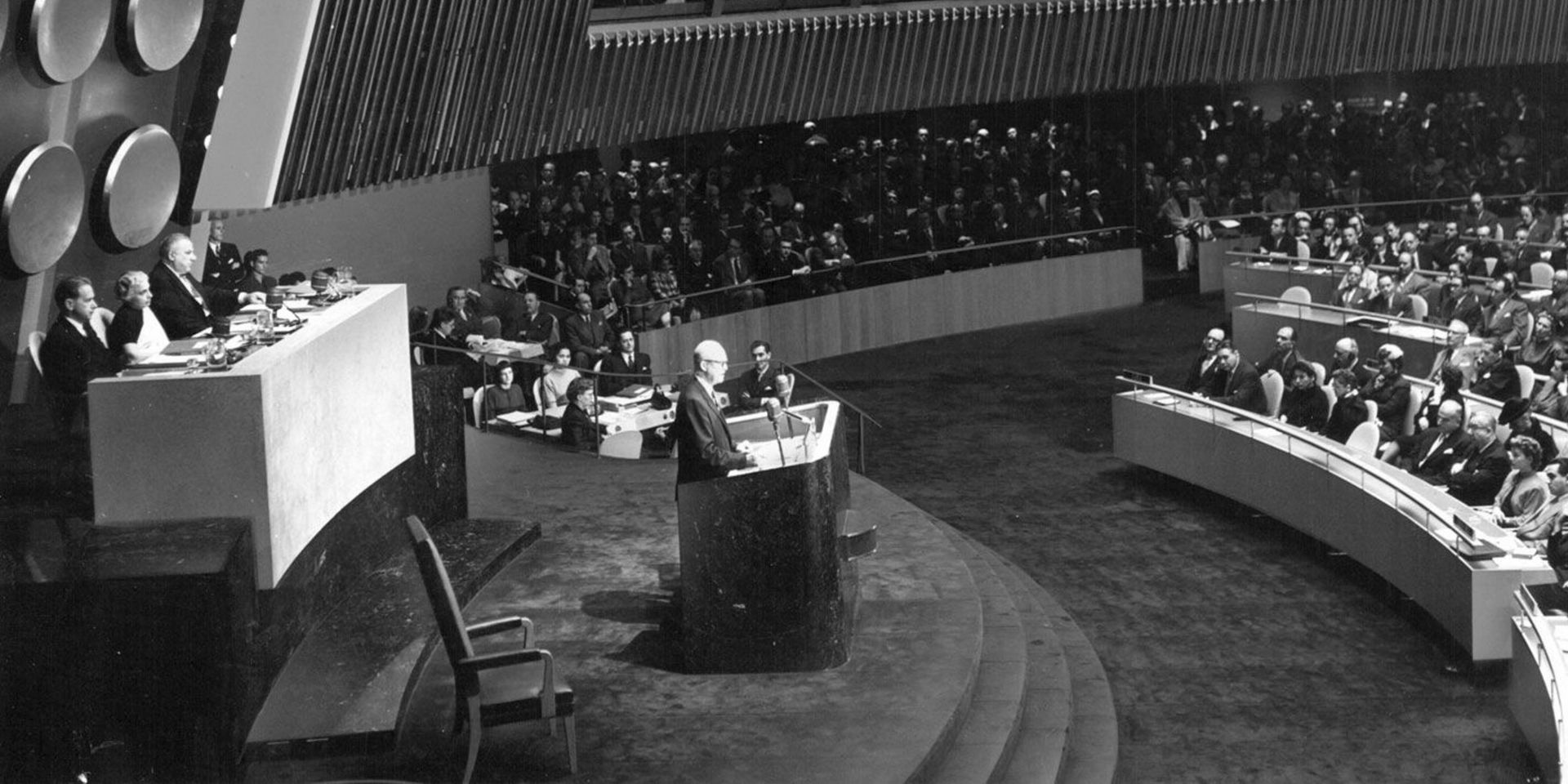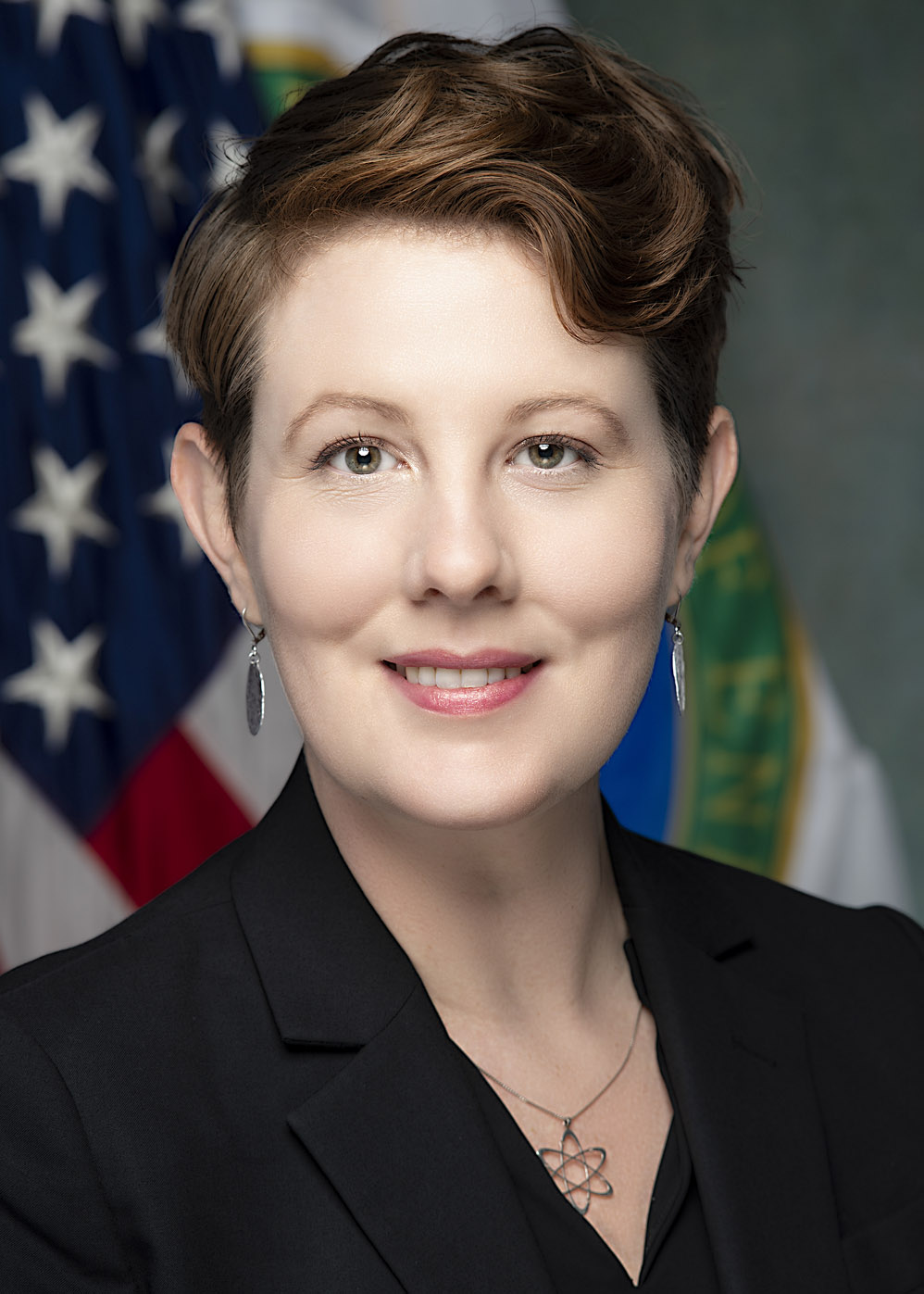IAEA director general Rafael Mariano Grossi welcomes participants at the annual session of the IAEA’s Nuclear Law Institute. (Photo: Dean Calma/IAEA)
As countries increasingly plan to adopt or expand nuclear energy to their energy grids, the importance of national and international nuclear law was underscored in recent remarks by Rafael Mariano Grossi, the International Atomic Energy Agency’s director general.
Eric Mathet (left), operational lead of the IAEA’s nuclear infrastructure development section, presents the INIR mission report to Antti Tooming, deputy secretary general of Estonia’s Ministry of Climate and head of the country’s nuclear energy working group.
A team of experts from the International Atomic Energy Agency recently concluded an eight-day mission to Estonia, finding that the Baltic state has developed a comprehensive assessment of its nuclear infrastructure development needs, enabling the government to make an informed decision on whether to pursue a nuclear power program.
Khmelnytskyi nuclear power plant in Ukraine. (Photo: Wikimedia)
Explosions near the Khmelnytskyi nuclear power plant in western Ukraine early Wednesday shattered windows at the facility and temporarily cut off power to some off-site radiation monitoring stations, the International Atomic Energy Agency reported on October 25.
Dongyu Qu, director general of the FAO (center left) with Rafael Mariano Grossi, director general of the IAEA and Najat Mokhtar, deputy director general and head of the IAEA Department of Nuclear Sciences and Applications (far right) on the sidelines of the World Food Forum. (Photo: D. Calma/IAEA)
The International Atomic Energy Agency and the Food and Agriculture Organization of the United Nations launched Atoms4Food on October 18 at the 2023 World Food Forum in Rome as a flagship initiative to help boost food security and tackle growing hunger around the world. Atoms4Food will support countries as they apply nuclear techniques to boost agricultural productivity, reduce food losses, ensure food safety, improve nutrition, and adapt to the challenges of climate change.
IAEA director general Grossi delivers the opening plenary at the Second International Conference on Climate Change and the Role of Nuclear Power. (Photo: IAEA)
The IAEA’s new nuclear security training center. (Photo: Katy Laffan/IAEA)
A new IAEA peer review service demonstrates the proper management of disused sealed radioactive sources. (Photos: IAEA [left] and TINT [right])
The International Atomic Energy Agency has carried out the first mission of its Disused Sealed Radioactive Sources Technical Centre peer review service, or DSRS TeC, at the Thailand Institute of Nuclear Technology (TINT) in Bangkok. Held July 18–21, the inaugural mission was supported by funds from the United States.
The IAEA is helping expand the use of nuclear medicine to control cancer in developing nations. (Photo: P.Pavlicek/IAEA)
With funding from the Islamic Development Bank (IsDB), the International Atomic Energy Agency is working to help developing countries scale up their cancer care capacities in radiotherapy, the agency said. A multilateral development bank, IsDB works to improve lives by promoting social and economic development in 57 member states and Muslim communities around the world.














